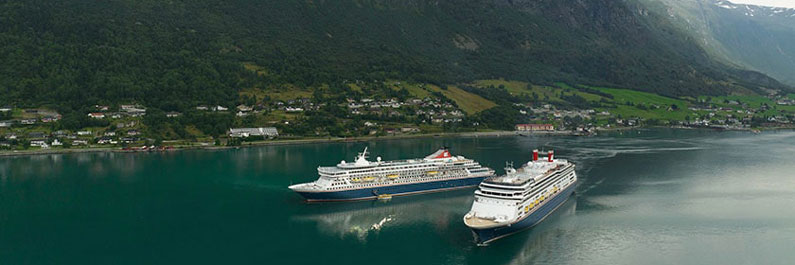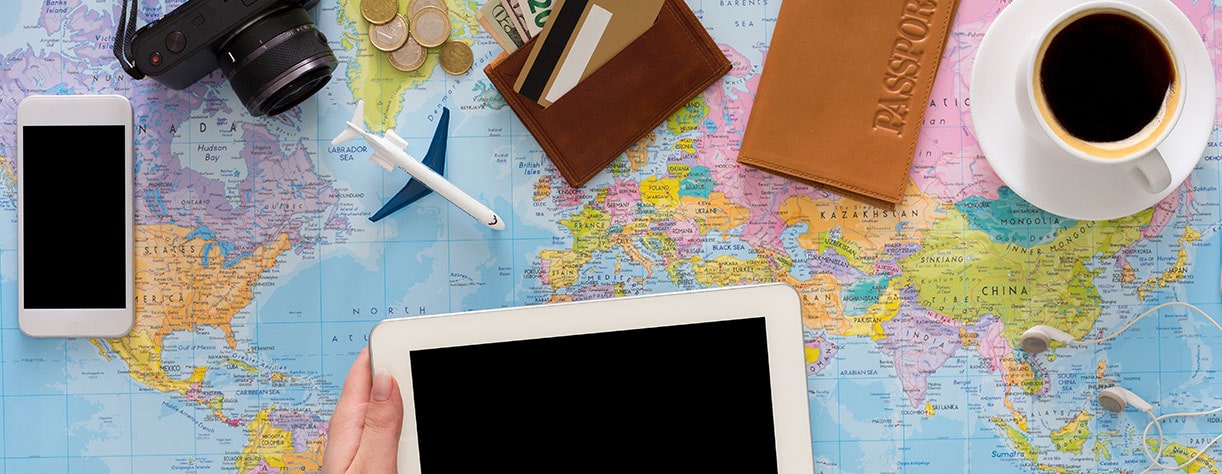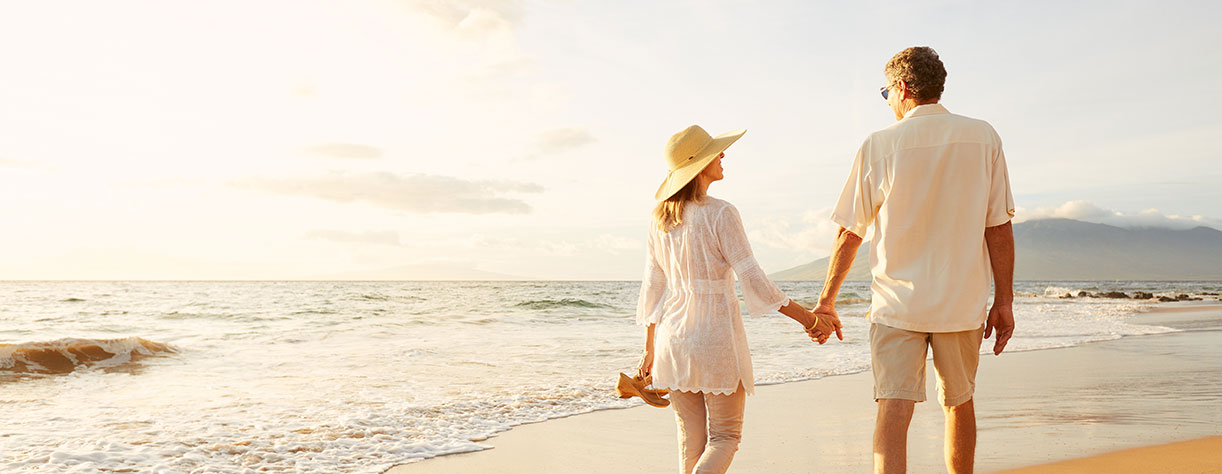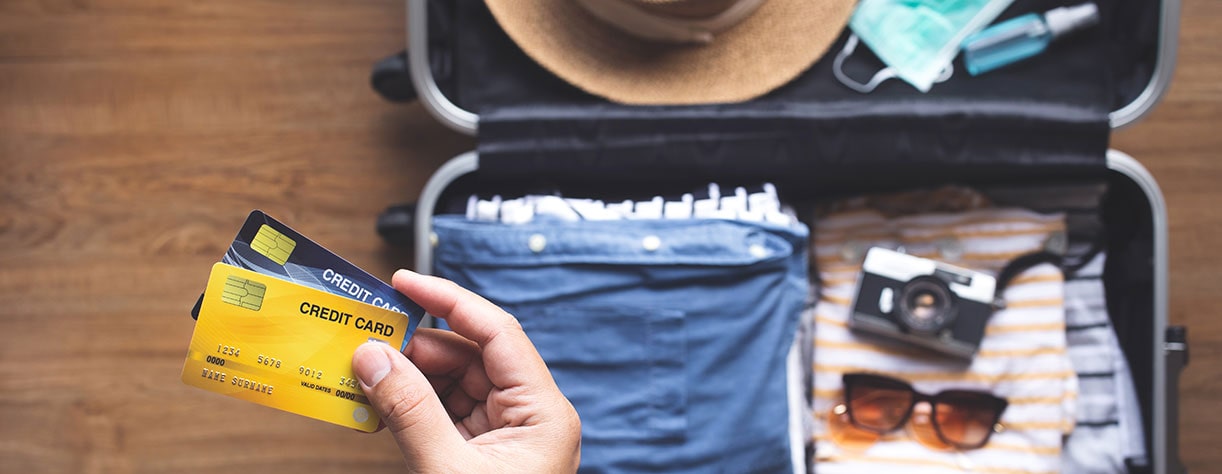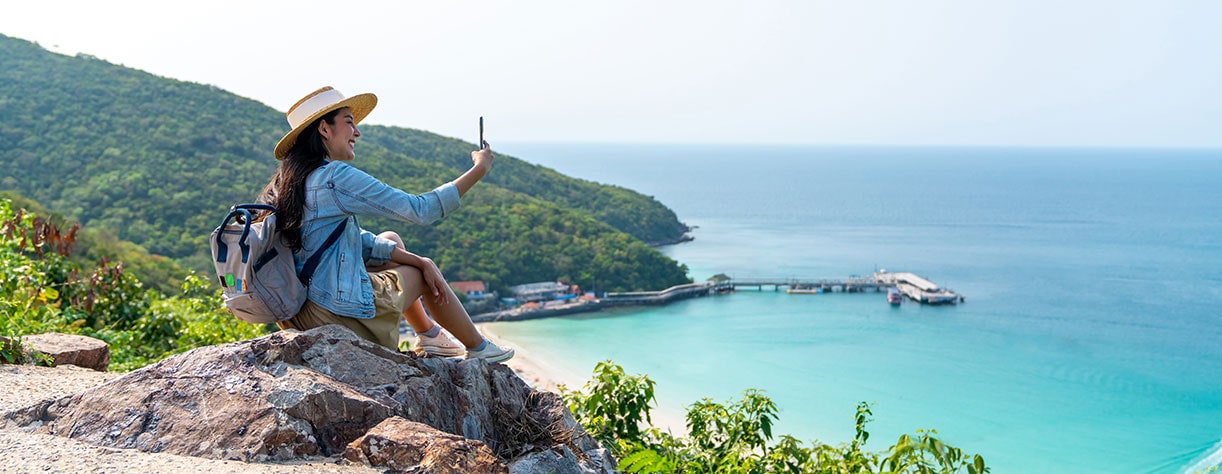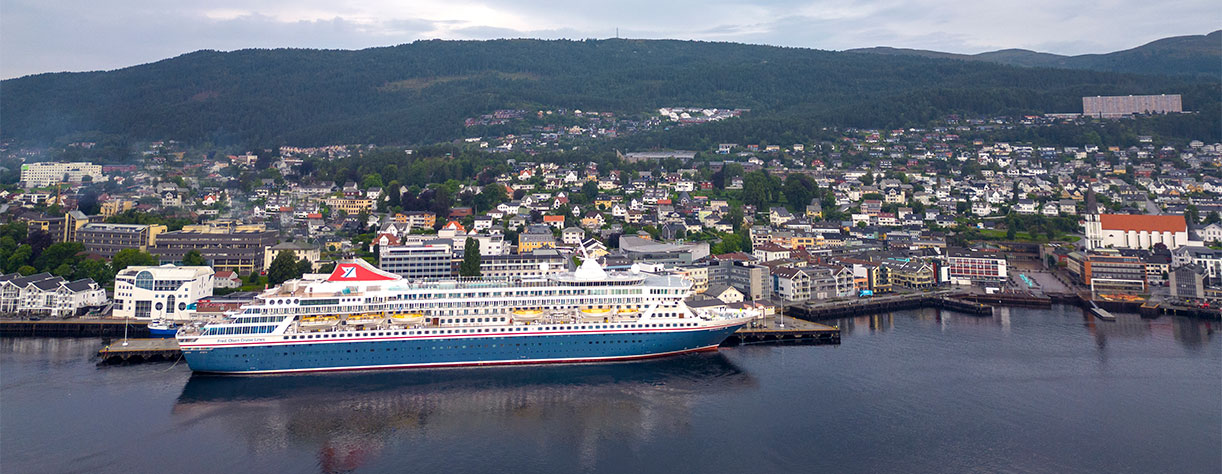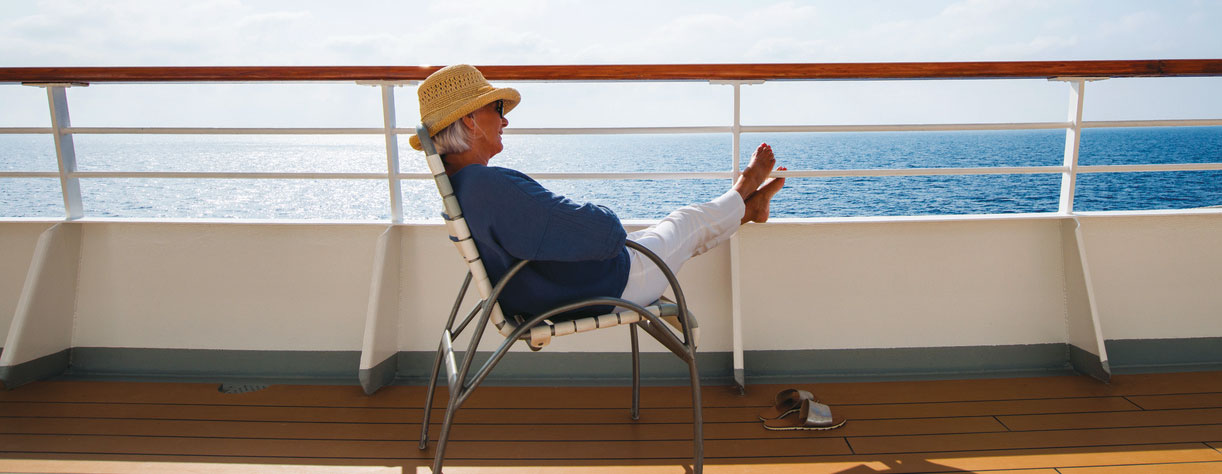With holidays both at home and overseas firmly back on the agenda, we’re seeing a whole new host of travel trends and changing attitudes towards travel emerging. Whether it’s a shift in hesitance to book travel, changes in the amount spent on a holiday or a newfound appetite for a taste of solo travel, there’s a lot to unpack when it comes to exploring how travel habits have shifted since the pandemic.
The seeming ‘end’ of the pandemic has exposed the nation’s love of overseas travel, with many airports and ports struggling across the summer period to keep up with the sheer demand of people wishing to get away for their holidays. It’s clear to see we’ve all missed our fun in the sun, but have the events of the last year or two impacted the travel trends we’re seeing now?
To explore this further, Fred. Olsen Cruises surveyed 1,000+ consumers across the country to establish what their holiday habits and preferences are now and how they have been affected by change over the last couple of years. So let’s delve in!
The Cost of Living Crisis Is Impacting Travel Bookings
According to Barclaycard spending insights, the nation is cutting back slightly on overseas travel due to higher household costs in the midst of the cost of living crisis. As Brits are facing an increase in household bills, our research uncovered that almost two in five (38%) travellers say the cost of living has stopped them from booking a travel trip. COVID-19 concerns (36%) and the UK travel chaos (34%), including flight cancellations, were the next two reasons identified for avoiding travel bookings, respectively, with the full list as follows:
| 1. | Cost of living crisis | 38% |
| 2. | COVID-19 | 36% |
| 3. | UK travel chaos | 34% |
| 4. | Financial limitations | 28% |
| 5. | Vaccine passport requirements | 9% |
However, Many Brits Aren’t Holding Back From Travelling
Whilst there are concerns within the current climate around booking a travel trip, almost a third (32%) of respondents had no concerns with booking travel in the current climate. Whether we’ve missed our breaks abroad that much and are seeing travel as more of an essential or we’re cutting back on traditional essentials like fuel to ensure a holiday is on the cards, it’s clear that many Brits are still planning on travelling regardless of the current cost of living.
Almost half are willing to spend between £500-£1,000 on a trip
You might think that travel is one of the key expenditures people are cutting back on, as it’s not necessarily an “essential”. But with many still seemingly keen to travel, it’s interesting to look at how much the nation are willing to spend on a travel trip in today’s financial climate.
From the research, almost half (47%) of the respondents from our survey indicated they would be willing to spend between £500 - £1,000 on a travel trip per person, while 34% suggested they would spend between £1,001 and £5,000.
| 1. | £500 - £1,000 | 47% |
| 2. | £1,001 - £5,000 | 34% |
| 3. | Less than £500 | 12% |
| 4. | £5,001 - £10,000 | 5% |
| 5. | £10,001 - £15,000 | 0.96% |
| 6. | £15,001 - £20,000 | 0.41% |
The majority of our respondents were willing to pay the average in this country for a week in the European sun, whether it’s an all-inclusive in Spain or a bed & breakfast in Greece. Interestingly, and in light of the cost of living crisis, over a third (34%) were still willing to pay between £1,001 and £5,000 for a travel trip, with more men than women selecting this answer.
Over one in five are considering a solo travel trip this year
The perception of solo travel has been an interesting one for a long time, with many perceiving it as a pastime of young people and those on a gap year seeking to ‘find themselves’ on a far-flung adventure. Others may have thought it a peculiar circumstance, believing that person must be travelling alone because they have no one else to travel with.
In 2022 however, these perceptions are being challenged, and solo travel is becoming one of the biggest emerging travel trends among many age groups. Our research reveals that over one in five (21%) are considering booking a solo travel trip within the next twelve months, with almost two in five (38%) saying they feel more confident travelling alone at this stage of life.
Of course, there will always be reasons for people not to travel alone but we found some interesting statistics in our survey when looking at both motivations for and reasons against solo travel. There were several reasons identified as solo travel motivators, with the feeling of freedom and exploring at one’s own pace taking the top spots:
| 1. | Feeling of freedom and independence | 27% |
| 2. | Exploring a destination at own pace | 25% |
| 3. | Encouragement to meet new people | 14% |
| 4. | Seeking a challenge | 12% |
| 5. | Self-discovery | 12% |
| 6. | Improvement in self-confidence | 11% |
Splitting the data between males and females, we found that more women cited a ‘feeling of freedom and independence’ as a motivator for travelling alone, while more men suggested their key motivator would be ‘exploring a destination at their own pace’. 10% of respondents also shared that solo travel is appealing to find a holiday fling or relationship.
However, there are two sides to the coin. Whilst almost two in five (39%) of respondents say solo travelling appeals due to not having to compromise on travel plans, a large chunk of respondents indicated many are against the idea of independent travel, with 17% stating they are too embarrassed to solo travel. Safety concerns (32%), loneliness (27%) and higher travel costs (26%) were cited as the most common reasons why a person has put off travelling alone.
| 1. | Safety concerns | 32% |
| 2. | Loneliness | 27% |
| 3. | Higher travel costs | 26% |
| 4. | Lack of confidence | 25% |
| 5. | Lack of shared moments | 20% |
| 6. | Engaging in activities alone | 19% |
Our data found a huge difference between males and females when it came to many of the reasons why they have been put off travelling alone. For example, just 16% of men indicated safety concerns were a reason, while 45% of women selected this option. Likewise, over a third (35%) of women cited a lack of confidence compared to just 13% of men.
City trips and cruises are the most popular solo holiday breaks
Our survey asked respondents which types of solo holiday would most appeal to them, with city breaks (16%) and cruises (13%) being the most favoured holiday types. Over one in five (21%) keen travellers stated that they feel more comfortable solo travelling on a cruise than any other type of holiday.
| 1. | City break | 16% |
| 2. | Cruise | 13% |
| 3. | Beach holiday | 12% |
| 4. | Staycation | 6% |
| 5. | Road trip holiday | 5% |
| 6. | Holiday resort trip | 4% |
We also studied the location demographics for those most likely to select cruising as a solo holiday type, with some surprising results. We anticipated more people from coastal areas or those near port towns to be more likely to select this option, however, the region with the highest number of respondents citing cruise as their preferred solo holiday was Wales, closely followed by Yorkshire and the Humber.
It’s one thing to decide that solo travel is right for you, but it’s also another thing entirely when it comes to researching for your trip and taking recommendations from a source you trust. Our research found there were only a few options that respondents say they would use for a solo travel recommendation, with the top one being TripAdvisor (21%).
| 1. | TripAdvisor | 21% |
| 2. | Travel Agent | 18% |
| 3. | Family & Friends | 13% |
| 4. | Cruise Critic | 3% |
| 5. | 2% | |
| 6. | Online magazine | 1% |
Solo Travel Feels More Socially Acceptable Now
An emerging insight from the recent research is the changing attitudes towards solo travelling. A surprising 60% of respondents stated that they felt solo travelling is more socially acceptable now than it was 10 years ago, highlighting a positive change in perception around independent travel within the current climate. With there being a range of positive motivators behind solo travel, 31% also say solo travelling has helped them improve their self-confidence and independence.
What does our research say about changing travel attitudes?
Our study has revealed several interesting statistics about the travel trends which have emerged this year, especially concerning solo travel. What we can say with confidence though, is that there doesn’t seem to be too much slowing down in the booking of travel, with many still seeking to spend on travel and overseas adventures in the current climate.
With each of our cruises highlighting the best each destination has to offer, whether you are seeking a city break with rich history like our Discovering Scandinavian Islands & Capitals cruise or a solo traveller cruise adventure such as Canada In The Fall, Fred. Olsen has a range of great offers.
Fred. Olsen Cruises research was conducted by Censuswide, with 1455 respondents in the UK between 21.07.2022 - 26.07.2022. Censuswide abide by and employ members of the Market Research Society which is based on the ESOMAR principles. Censuswide is also part of The British Polling Council.


